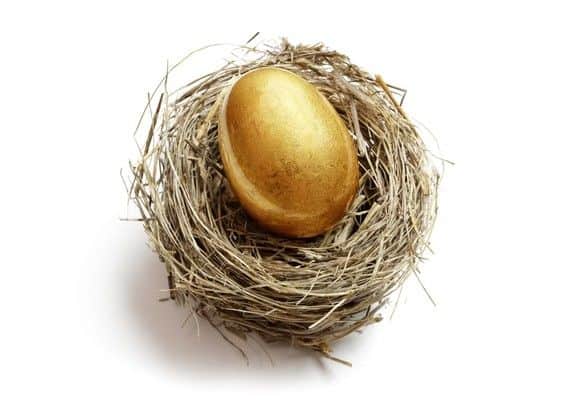
The best dividend stocks are those that offer a solid yield, regular payout growth, and are backed by businesses that are moving in the right direction. Owning a stake in companies that fit this esteemed profile and reinvesting the dividends is one of the most dependable paths to building wealth.
To get a survey of income-generating stocks that could have a profound, positive impact on your portfolio, we asked three Motley Fool investors to identify a company with an attractive dividend profile backed by a strong underlying business. Here’s why they think United Parcel Service (NYSE: UPS), Best Buy (NYSE: BBY), and The Walt Disney Company (NYSE: DIS) are top stocks for investors looking to build a golden nest egg.
Riding the e-commerce wave
Tim Green (United Parcel Service): Shares of UPS have tumbled about 22% since peaking earlier this year. The company’s fourth-quarter results beat expectations, but there were some problems. The company was forced to incur an additional $125 million in costs during the peak holiday season; e-commerce growth continued to put pressure on margins; and the company plans to ramp up capital spending for the next few years.
The big question: Will this increased capital spending produce the kind of returns the company is used to? Or will it act as a drag on earnings? Complicating matters is Amazon’s push to handle delivery on its own, and the potential for the e-commerce giant to build a logistics and delivery service for other companies in the same way it built a cloud-computing service.
UPS is still enjoying strong growth, with revenue expanding by 11.2% in the fourth quarter. And the threat of Amazon encroaching on UPS’s turf is probably overblown, although it certainly shouldn’t be ignored. The stock yields about 3.5% based on the most recent quarterly payment. The dividend eats up about 60% of UPS’s annual adjusted earnings.
Dividend growth will be driven by earnings growth going forward, so heavier investments could produce slower dividend growth over the next few years. But these investments will allow UPS to take advantage of growing demand for e-commerce package delivery, providing growth for years to come.
Best Buy’s a bargain
Rich Smith (Best Buy): Against all odds, Best Buy has avoided the retail apocalypse that claimed such rivals as Circuit City, hhgregg, and — probably soon — Sears. (Seriously. Mark my words.)
This you already know, but here’s something you may not know: More than just surviving, Best Buy is thriving. Last quarter, the electronics and home appliances superstore grew its sales 14% year over year. True, GAAP profits were down, but that was true of many companies affected by the Trump tax cuts. Free cash flow, on the other hand — the actual cash profit earned by the company — remains impressive, with Best Buy churning out $1.45 billion in FCF over the past 12 months, versus reported GAAP profit of only $1 billion.
At that level of free cash flow, Best Buy is producing enough cash to pay its 2.7% dividend yield nearly three times over. The company’s payout ratio, a healthy 33%, reflects this fact. That dividend, by the way, is already 30% richer than the average dividend of 2% paid by other companies in the S&P 500. And with analysts predicting that Best Buy will extend its lead in the world of physical retail, growing earnings 16% a year on average over the next five years, there’s every reason to believe that Best Buy’s market-beating dividend yield will only get bigger over time.
At 14 times free cash flow, 16% growth, and paying a 2.5% dividend yield, I think Best Buy stock is exactly what its name suggests.
Stack dividends with The House of Mouse
Keith Noonan (The Walt Disney Company): Market sentiment on Disney has been muddled by the weakening of ESPN and other assets at its media networks segment and threats posed by competitors like Netflix and Amazon. It’s undeniable that some big shakeups are happening in the entertainment industry, but the recent uncertainty presents an opportunity to buy a stock backed by resilient business and a brightening income picture.
Shares yield roughly 1.7% at current prices, and Disney’s history and ample cash flow suggest that shareholders can look forward to healthy payout growth going forward. The House of Mouse has roughly doubled its dividend over the last five years, and it’s in great shape to continue delivering solid raises — with the cost of distributing its current payout coming in at just 27% of trailing free cash flow. That gives it room to continue raising its payout while also investing in the future of its business.
The company has a collection of entertainment franchises that’s unrivaled the world over and a proven ability to sustain the value of these existing properties while also creating new hits. Media networks will be a short-term drag, but with assets it can leverage in the streaming space and the pending acquisition of Twenty-First Century Fox’s entertainment properties, the company still has years of growth ahead of it.
Disney stock trades at just 14 times this year’s expected earnings — a multiple that puts it in the territory of a great value play given the company’s under-appeciated growth potential and a returned income component that’s only getting stronger with time.